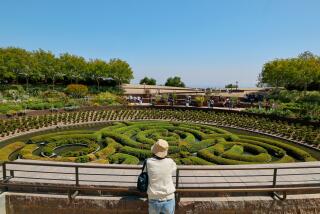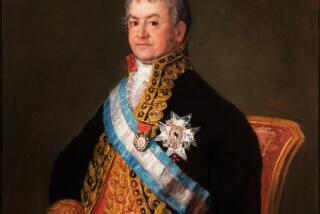A Tonic for American Malaise
After months of wrangling with officials who were reluctant to see the Renaissance masterpiece leave Britain, the J. Paul Getty Museum finally gained permission last week to acquire Fra Bartolommeo’s “The Holy Family With the Infant St. John.” It is paying $22.5 million for the work.
At a time when the mood of popular culture is reflected by the dark sensibilities of movies like “Dead Man” and “Leaving Las Vegas,” some will dismiss as stodgy the painting’s depiction of what Getty director John Walsh calls “a wonderful vision of a family bound together by something human and obviously divine.” After all, Bartolommeo created the painting in Florence, the cradle of the High Renaissance, in 1509, when Leonardo da Vinci and Michelangelo were producing visions of human grandeur and heroic action. What can he say to Americans dispirited by street warfare, soaring deficits and shrinking incomes? Plenty. The Florentine artists actually conjured their visions of harmony, balance and human sympathy not from cheerful surroundings but from hopeful hearts. In fact, Florence at the time was under threat from autocratic rulers and invaders; as Bartolommeo was painting “The Holy Family,” Niccolo Machiavelli was in a nearby piazza concluding that only the most unscrupulous and unprincipled kind of leadership could save his city.
The values of the High Renaissance painters, which went on to influence three centuries of art, were arguably more enduring than Machiavelli’s. So when Bartolommeo’s painting goes on display at the Getty early next year, this most creative of American cities will get a needed reminder of just how powerfully art can triumph over social malaise.
More to Read
The biggest entertainment stories
Get our big stories about Hollywood, film, television, music, arts, culture and more right in your inbox as soon as they publish.
You may occasionally receive promotional content from the Los Angeles Times.










